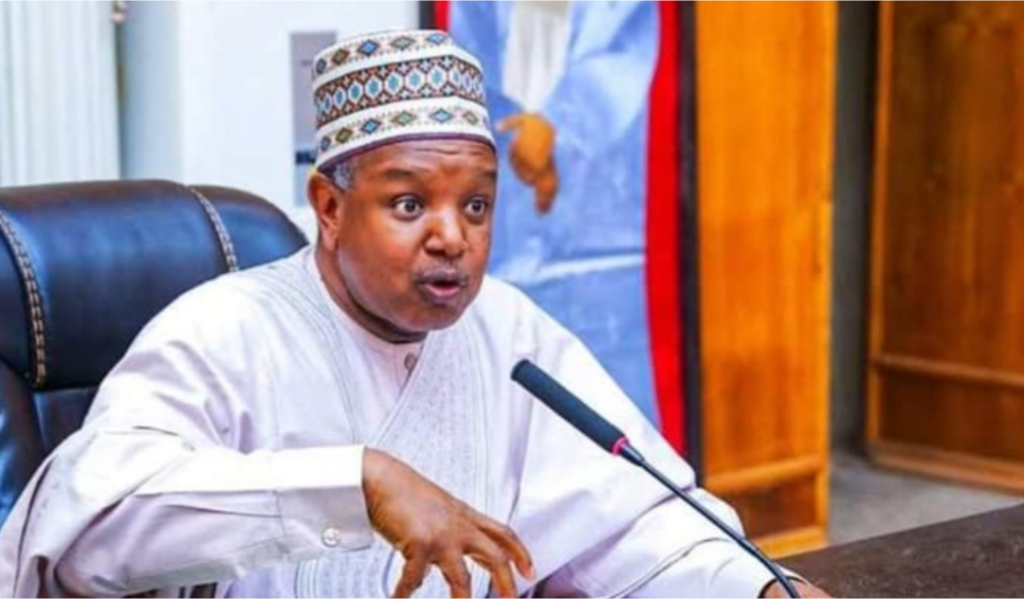Says Tinubu’s for everyone
Minister of Budget and Economic Planning, Senator Abubakar Bagudu, said yesterday the north has made more significant economic progress under President Bola Tinubu than any government.
He stated this in his presentation to the Sir Amadu Bello Memorial Foundation, which organised a two-day interactive session on government-citizen engagement organised in Sir Ahmadu Bello Memorial Foundation in Kaduna yesterday.
The engagement, with the theme, ‘’Assessing Electoral Promises: Fostering Government-Citizen Engagement for National Unity’’, which commenced on Tuesday, was attended by over 60 northern federal political appointees, including the Secretary to the Government of the Federation, Senator George Akume, who led the delegation, ministers and heads of some ministries, departments and agencies; northern state governors, and thought leaders in the region, particularly the Arewa Consultative Forum, ACF.
Bagudu stated that the president’s bold economic reforms had increased revenue for states, even as their debts had fallen, freeing up more resources for social and infrastructural development.
He said this situation had greatly benefitted the 19 northern states, which federally allocated revenue had increased significantly since Tinubu took office on May 29, 2023.
The minister explained that Tinubu’s reforms led to significant revenue growth for subnational governments, pointing out that between May 2023 and June 2025, total net statutory revenue and VAT allocation to states and local governments (excluding EMT levy, FX gains, and augmentations) more than doubled, rising from N458.81 billion to N991.81 billion.
According to him, this reflects an increase of N533 billion or 116.17% across the federation.
He said the significant increase in allocation was mainly due to the federal government’s bold reforms, including the removal of fuel subsidy.
He stated that though the reforms caused some short-term pains, the fiscal space created allowed for direct transfers of more oil revenues to the federation account, thereby increasing statutory allocations to subnational governments.
“By ending the fuel subsidy, President Tinubu made a hard but necessary call—liberating trillions of naira to expand federal allocations by over 340%. States now have the means to invest in their future,’’ he said.
Bagudu noted that while every state in the federation recorded significant increases in monthly allocations, northern states received a substantial raise.
He cited Gombe State, which had the sharpest rise, from N6.69 billion in May 2023 to N24.91 billion in 2025, amounting to a 272.35% increase.
He also referenced Kaduna State, which allocation increased from N11.94 billion to N42.01 billion, a rise of N30.07 billion, a 251.84% leap.
According to him, a regional breakdown of the benefits to the north showed that the north central’s share of revenue increased by 145%; the North East 149%; and the North West 143%.
He said: “These show how removing subsidies and enhancing revenue-sharing mechanisms have directly benefited state governments, enabling them to fund their development priorities.’’
Bagudu informed the audience that the fiscal position of subnational governments had also improved due to a significant reduction in domestic debt, made possible by the availability of additional funds from the federation account.
He explained that the debt portfolio of the 36 states and Abuja was reduced by 33.4% from N5.8 trillion to N3.8 trillion under the president’s deft financial engineering.
Isolating the north’s share of this, the minister noted that the region’s 19 states experienced a 42.06% reduction, from N1.98 trillion to N1.14 trillion.
“These results demonstrate the tangible benefits of macro-fiscal reforms. The Renewed Hope Agenda is delivering real value to citizens through improved subnational fiscal capacity.
‘’The Tinubu administration at the centre remains committed to fiscal transparency, equitable distribution, and continued collaboration with states and LGAs,’’ Bagudu told the audience.
He emphasised that the president’s administration had demonstrated a comprehensive and strategic approach to addressing the economic, social and governance challenges in northern Nigeria.
He said further: “By implementing bold reforms, investing in critical infrastructure, empowering local governments, and prioritising security and social welfare, the administration is working to create an environment conducive to sustainable development and improved quality of life for the people of the region.’’
Bagudu buttressed his submission by citing key infrastructural projects of the federal government in the north, including the Sokoto-Badagry superhighway, the dualization of the Kano-Maiduguri Road, the Sokoto-Gusau-Funtua-Zaria Highway, the Abuja-Keffi-Makurdi Road, the Ilorin-Jebba-Minna Road, the Abuja-Lokoja Road, and the Kano-Katsina Road dualization.
Other road projects he mentioned included the Abuja-Kaduna-Kano Expressway, the Malando-Garin Baka-Ngaski-Warra Road, the Bid-Zungeru-Kagara Road, the Gombe-Biu Road, the Yola-Numan-Jalingo Road, the Kaduna-Kano Railway, the Light Rail Projects in Kaduna, Kano, and the FCT, and the AKK Gas Pipeline.
The post FG’s economic reforms have favoured north — Bagudu appeared first on Vanguard News.

